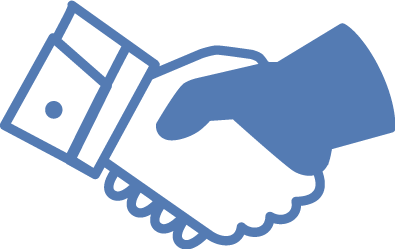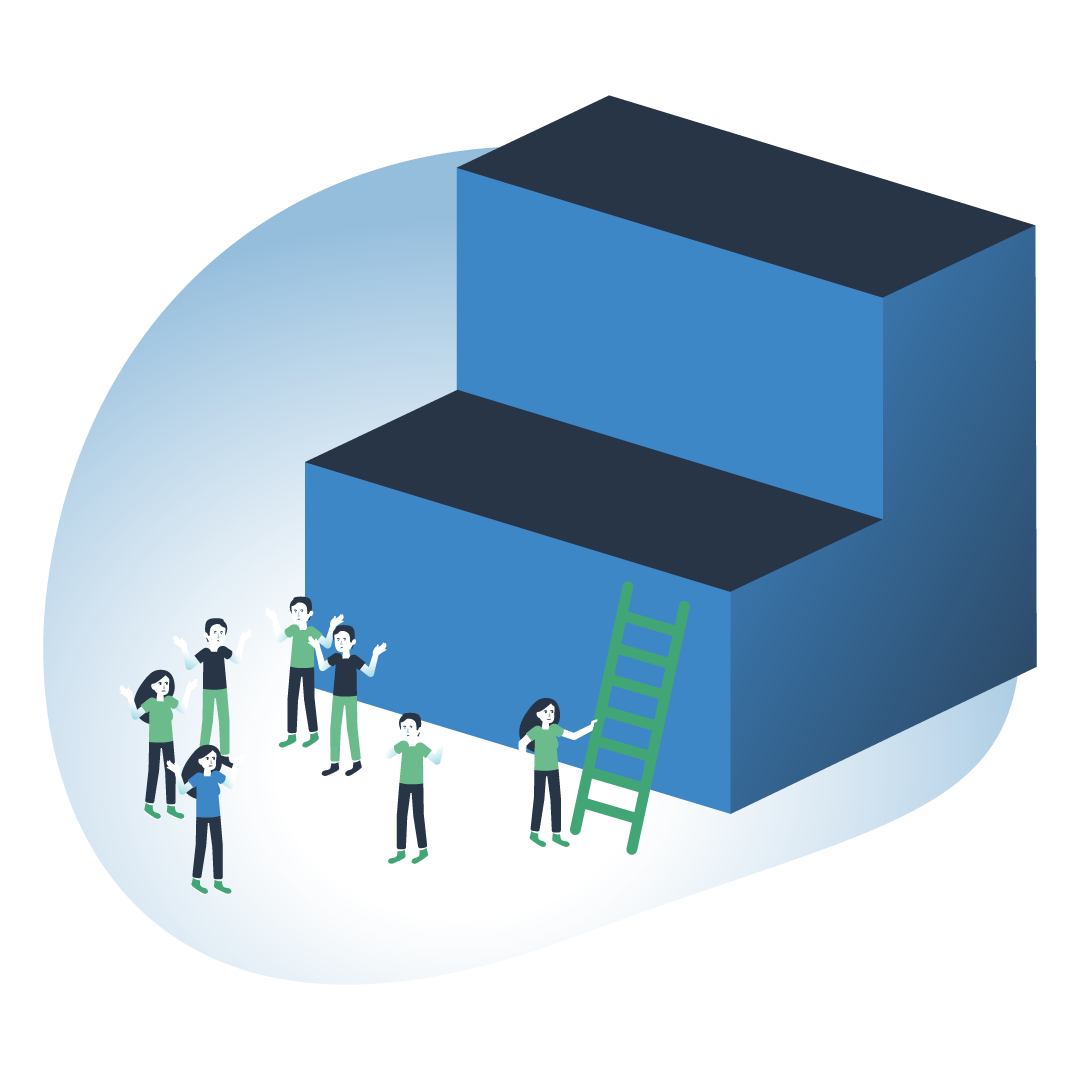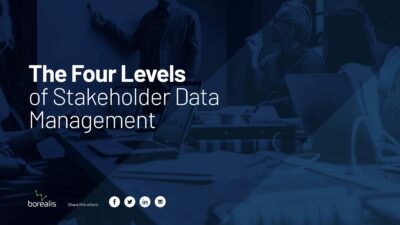Improve stakeholder engagement with the Data Maturity Model
For more than 20 years, Borealis has been working with customers around the world who need a data maturity model to promote optimal use of data, minimizing errors, redundancies and inefficiencies. Our community of stakeholder engagement professionals is made up of over 4,000 users, consultants, thought leaders and academics.
Although each industry has its own specificities, we’ve noticed that when it comes to managing stakeholder engagement activities, industry doesn’t really matter.
What is data maturity?
Data maturity refers to the level of development, sophistication and quality of data management practices within an organization. It involves an organization’s ability to effectively collect, store, manage, analyze and use its data to achieve its business objectives and meet the needs of its stakeholders.
An organization with a high level of data maturity will have processes, tools and policies in place.
This may include practices such as:
- Data governance
- Data quality
- Data lifecycle management
- Data security
- Advanced analytics
Maturity models
Maturity models are structured frameworks that describe an organization’s levels of efficiency, competence, and maturity in various areas, such as project management, software development or process management. They provide a scale for assesbosing where an organization stands in relation to specific best practices or standards, as well as a guide for progressively improving performance.
The main aim of maturity models is to guide organizations towards operational excellence and help them remain competitive in the marketplace.
L’objectif principal des modèles de maturité est d’aider les organisations à évaluer, améliorer et optimiser leurs processus, pratiques et capacités. Ils visent à guider les organisations vers l’excellence opérationnelle et à les aider à rester compétitives sur le marché.
L’objectif principal des modèles de maturité est d’aider les organisations à évaluer, améliorer et optimiser leurs processus, pratiques et capacités. Ils visent à guider les organisations vers l’excellence opérationnelle et à les aider à rester compétitives sur le marché.
A brief history of the evolution of maturity models
Maturity models emerged at the end of the 20th century as organizations sought to improve their processes and practices, particularly in the fields of software development and project management. Maturity models such as CMM and CMMI have played a significant role in promoting organizational improvement and excellence by providing frameworks for assessing and improving process maturity in a variety of areas. They have become invaluable tools for organizations seeking to achieve higher levels of performance and competitiveness.
- Capability Maturity Model (CMM): Developed by Carnegie Mellon University’s Software Engineering Institute (SEI) in the late 1980s, the Capability Maturity Model (CMM) was one of the first maturity models. It provided a framework for assessing and improving the maturity of an organization’s software development processes. The CMM defined five levels of maturity: Initial, Repeatable, Defined, Mastered and Optimized.
- Evolution to CMMI: Building on the success and lessons learned from CMM, SEI introduced Capability Maturity Model Integration (CMMI) in 2002. CMMI broadened the scope beyond software development to encompass various disciplines such as systems engineering, hardware development and more. CMMI integrated several maturity models into a unified framework, enabling organizations to assess and improve their overall capability and maturity in different areas.
- Adoption and impact: CMM and CMMI have been widely adopted around the world. Many organizations have used these models as benchmarks to assess their processes, identify areas for improvement and aim for higher levels of maturity. The structured approach provided by these models has helped organizations improve their efficiency, quality and, ultimately, their competitiveness in the marketplace.
Over the years, both the CMM and CMMI have been revised and updated to keep pace with changing industry practices and emerging challenges. SEI continues to refine the models, incorporating feedback from practitioners and incorporating new best practices to ensure their relevance and effectiveness in a constantly evolving business environment.
Evaluate stakeholder data management processes with different types of maturity models

4 levels of maturity for stakeholder data management
Initially, it is imperative to conduct an analysis of one’s current position. Have you implemented mechanisms to monitor your social and environmental performance activities?
Only then can you develop a plan to improve your stakeholder data management.
Level 1 - Basic level: No digital trace
Organizations at this level work with little or no paper trail or digital record. Strategic information is stored in people’s heads. There is no corporate memory; staff come and go, as does information. There is no way of tracing what was said and agreed at public consultations or formal and informal meetings.
Level 2 - Ad hoc level: Focus on data collection
Level 2 organizations collect data here and there, but the information is not centralized. It comes in a variety of formats (Excel, Word, SharePoint, e-mail, photos, PDF, MS-Access database). It’s usually a piecemeal initiative from one or more departments.
Level 3 - Operational level: Reports with lagging indicators; focused on operations and projects.
At this level, there is a defined approach with certain operational processes to guide teams. Tracking performance indicators enable activities to be monitored with an overview of the situation. Some sites may use a given system, while others may use something else: we often notice a disconnect in reporting from one site to another. Stakeholder data management focuses on historical data and compliance with laws and regulations.
Level 4 - Strategic level: Strategic management and performance
Level 4 organizations often rely on a business-driven system that can take into account site-specific issues. Information from the stakeholder data management system is driven by strategic decisions, and management regularly uses the data to support decision-making. The company has defined leading social performance indicators. Stakeholder engagement plans are no longer static documents.
Discover how your organization handles stakeholder data and explore ways to enhance this management utilizing the four levels of stakeholder data management.
Data management: the role of maturity models
Maturity models play a crucial role in data management, providing a framework for assessing and improving data management practices within organizations. They enable clear, measurable objectives to be set for the collection, storage, analysis and use of data. In this way, they promote a systematic and evolutionary approach. What’s more, by aligning data management processes with specific maturity levels, organizations can better respond to the changing needs of their stakeholders, be they customers, employees or business partners. In this way, maturity models are an essential tool for ensuring the strategic use of data and fostering stakeholder engagement by offering greater transparency and reliability in the management and use of information.
Assessment techniques using the Boréalis diagnostic tool
Here are some tips and tricks for assessing the different levels of data management maturity using the Boréalis diagnostic tool.
Level 1
At the basic level of data management, an in-depth analysis of the organization’s current practices is required. This involves interviews with key personnel to understand how information is stored and shared. Structured questionnaires can be used to assess the level of reliance on paper media, individual memories and informal processes. Techniques such as examining physical archives, existing IT systems (where applicable) and meeting management practices can also be employed to assess the availability and accessibility of information.
Level 2
At this level, the focus is on collecting data from various sources scattered throughout the organization. To assess this situation, dashboards can be used to map existing data sources. Interviews with departments help to understand their data collection needs, while surveys assess stakeholders’ internal perceptions of the availability and usefulness of current data. Techniques such as data quality analysis, data flow mapping and systems integration assessment can be employed to identify gaps in data management.
Level 3
Assessment focuses on the effectiveness of existing business processes and the use of data to guide decisions. Process analyses identify inefficiencies, report reviews assess their relevance, and stakeholder interviews determine information needs. Techniques such as trend analysis and performance indicator evaluation are used to measure the organization’s ability to use data to inform its activities.
Level 4
To assess level 4 of strategy-oriented data management maturity with the Boréalis diagnostic tool, an exhaustive approach is required. This involves a detailed analysis of data management systems, examining their collection, storage and use for strategic decisions. System integration and interoperability are also assessed to ensure a coherent overview. Finally, the use of data to guide strategic decisions is examined through case studies and interviews with management. These methods help identify the strengths and weaknesses of the data management system in order to develop action plans to improve the organization’s ability to use data in strategic decision-making.
How does the maturity model translate into organizations?
Here are some concrete examples of organizations at different levels of data management maturity, and how they have progressed through these levels:
Level 1: Basic level
A small local mine at the basic level: A small local mine operating with rudimentary data collection methods, mainly based on paper records and verbal communications to track operations and inventory. They have no structured digital recording system. Recognizing the limitations of this manual approach, the mine decided to move to the first level of maturity by investing in basic IT solutions. This could mean adopting rudimentary data management software or a cloud-based inventory tracking system. This transition to a more organized, digital approach is a crucial step towards improving data management and laying the foundations for future growth.
Level 2: Ad hoc level
A medium-sized health clinic at the ad hoc level: A health clinic uses various software systems for different services, such as electronic records management, appointment scheduling and billing. However, these systems are not integrated, resulting in information silos. Recognizing the need for better integration and centralization of data, the clinic is investing in a comprehensive electronic medical records management system, offering a consolidated view of patient data and improving care coordination.
Level 3: Operational level
A forestry company at the operational level: A forestry company has implemented standardized data management procedures in its various operations. It uses IT systems to track inventories, manage logistics and monitor production indicators. To further strengthen its data management capabilities, the forestry company integrates advanced analysis tools, enabling in-depth assessment of sustainable forest management, optimization of transport routes and forecasting of forest product demand.
Level 4: Strategic level
A global healthcare giant at the strategic level: A healthcare organization uses advanced AI-based analytics to personalize treatments, improve drug inventory management and predict epidemics. Equipped with a robust data governance framework, guaranteeing the quality and confidentiality of medical information, the company also invests in emerging technologies such as genomics and telemedicine, fostering a holistic and innovative approach to healthcare delivery.
Improve data management maturity for better stakeholder engagement
Don’t forget that companies that want to have a long-term presence need to consider the impact they have on stakeholders.
It’s the role of stakeholder engagement teams to find ways of identifying their organization’s key supporters and detractors.
As teams engage with stakeholders, expectations and attitudes change. You need to be constantly aware of how your organization is positioned in the minds of its stakeholders.
It’s important to know to what extent your stakeholders are aligned with your organization’s mission, values and objectives.
Borealis for strategic stakeholder engagement
All our customers, and an ever-growing number of companies in different sectors, have similar objectives. They all want to ensure that their projects are accepted by society, and they strive to create genuine shared value.
In this context, the information gathered and analyzed by stakeholder engagement teams has strategic value, but only if it’s available to decision-makers at the right time.
At Borealis, we help organizations achieve better project approval results by building trusting relationships. With our software, they can easily retrieve data when needed, manage social risks to limit their impact, and stay on track with their business activities.
Contact us today to find out more about the tools we can provide to support your operations.









